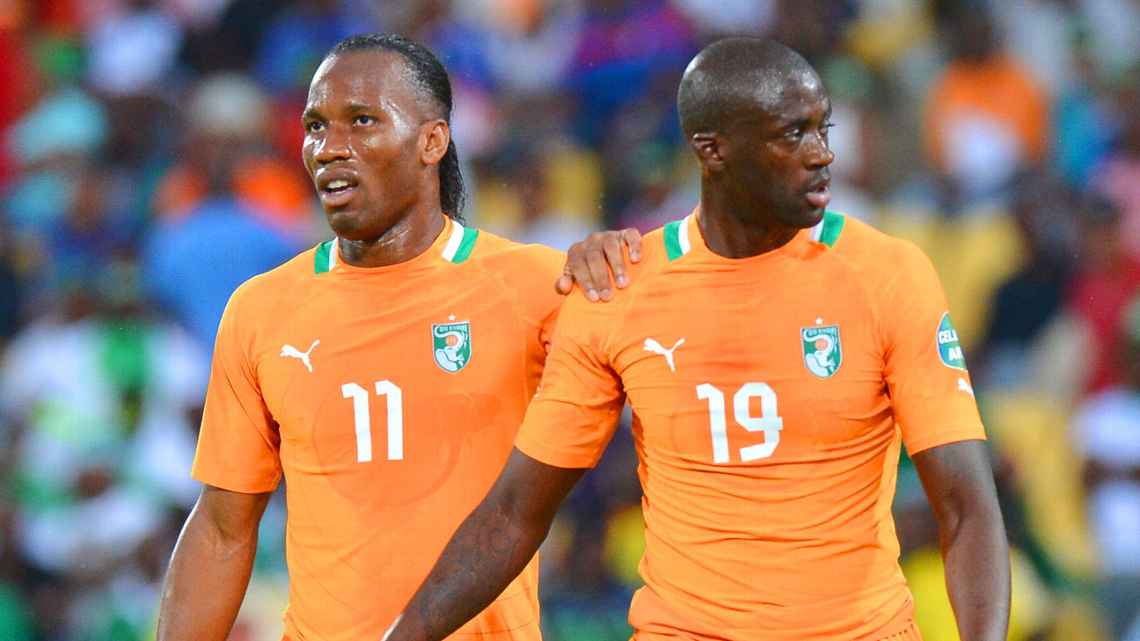Manchester City veteran Yaya Touré is a certified African legend, as his four CAF Player of the Year awards, two Premier League titles, two La Liga titles, one UEFA Champions League title, and one Africa Cup of Nations trophy all attest.
But despite his numerous accolades and awards, the former Ivory Coast star told KweséESPN during City’s current ICC tour to the USA that he feels unappreciated in his homeland, hence his stance on remaining retired from international football.
The captain of Ivory Coast’s 2015 Africa Cup of Nations-winning team hasn’t actually played for his country since that night in Equatorial Guinea, when Les Éléphants defeated Ghana’s Black Stars on penalties to win their first, and long-awaited, Afcon trophy.
Describing his emotions as he led his countrymen to victory, Touré reflected on the moment, and the hurt he carried with him from critics prior to 2015, saying: “[It felt] Unbelievable. We’d been fighting for how many years to bring the trophy? Losing in the finals two times, and sometimes when things happen they would say it was me, the main one who made them lose all the time, and I was very, very disappointed.”
Sitting on 100 caps for his country, Touré explained why he has refused all call-ups since 2015, and why he will continue to rebuff his national team, even if current Ivory Coast manager Marc Wilmots offers him an opportunity.
Touré stated, when asked if he would accept a call-up: “No. To be honest, I was very sad at what is happening for my country. Sometimes you’re not the king in your country, but you’re a king outside.
“I think the way I’ve been treated, I was living in my mind like I was the most hated person in this country because they’re always creating things with my big brothers, and always create problems between players.

“Cristiano Ronaldo, it’s never happened to him in his country. I think [Cameroon’s] Samuel Eto’o was fine, he was very loved in his country. Me, I was worse.
“Any problems that happened in this national team was me. It made me sad the way I was feeling, like I was the most hated person. What I was trying to do was show them that I love the country [despite] what happened to me. I promised my wife and my family and friends I would bring them a trophy [Afcon] and then I left.”
The Ivory Coast media have long cast aspersions at Touré regarding the relationship between him and legendary striker Didier Drogba [from a perceived lack of an on-field connection to regional differences], but Touré says: “[My best friend] it was Drogba. I don’t understand how people were saying I hate him. I loved to stay with him and play with him. The second one was my brother Kolo and the third it was Gervinho.”
With international football in his rearviewmirror, at least until (or if) his problems with his country are resolved, the midfielder is free to focus on club football and the task of leading Manchester City back to the top of a tightly contested Premier League.
The turnaround for Touré at Manchester City in less than a year has been a surprise to many observers. Cast out of the inner sanctum by manager Pep Guardiola last autumn after harsh words from Touré’s agent Dimitri Seluk in the media, one could have expected the Ivorian to leave Manchester for a less competitive league and a team willing to splash the cash.
But Touré, one of the hardest workers in the game despite his deceptively languid style, dug deep. Remaining professional in behaviour, he worked hard to get in better shape, which was noted by his manager.
Source:Kwese ESPN
